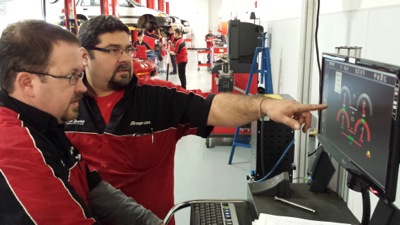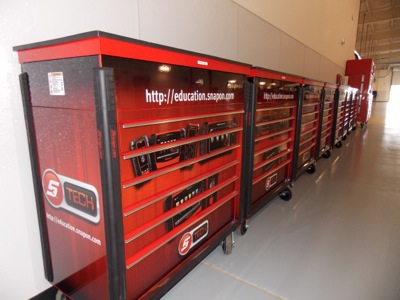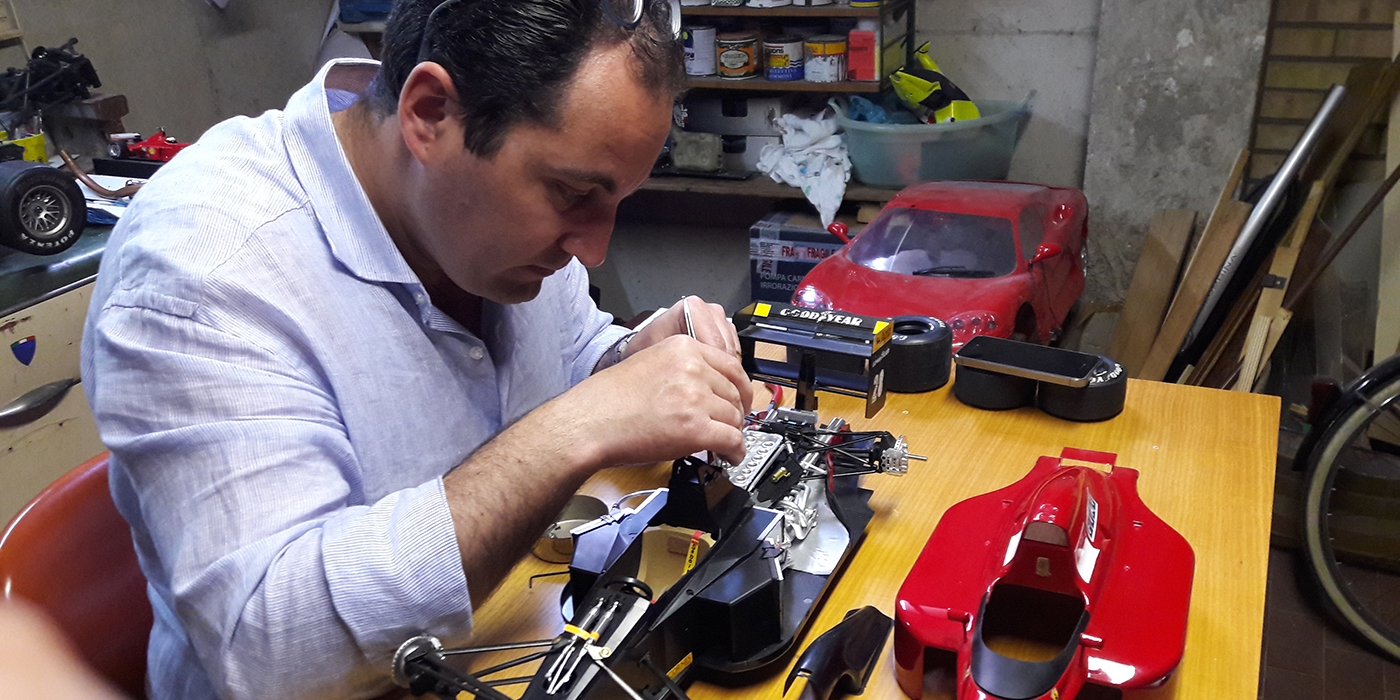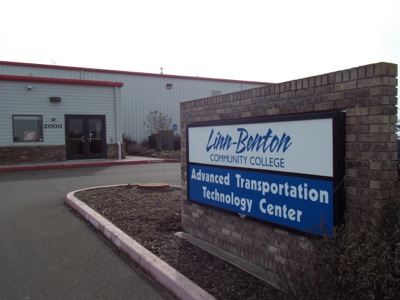 Technical education will continue to play a key role ensuring the next generation of technicians is fully trained and ready to enter the workforce. Perhaps there is no greater need for technical training than right now. That’s because the United States is experiencing a skills gap of epic proportions. According to Businessweek.com, there are more than 600,000 manufacturing and skilled trade jobs that remain unfilled due to a lack of skilled workers. Additionally, technicians and skilled trades represent two of the top three most difficult job categories for companies in this country to fill.
Technical education will continue to play a key role ensuring the next generation of technicians is fully trained and ready to enter the workforce. Perhaps there is no greater need for technical training than right now. That’s because the United States is experiencing a skills gap of epic proportions. According to Businessweek.com, there are more than 600,000 manufacturing and skilled trade jobs that remain unfilled due to a lack of skilled workers. Additionally, technicians and skilled trades represent two of the top three most difficult job categories for companies in this country to fill.
Not surprising, the onus to help train tomorrow’s technicians and begin to close the skills gap continues to fall on community colleges and technical schools. But they don’t have to do it alone, and that’s a new concept many institutions are exploring to help advance their skills training programs. The idea involves partnerships between community colleges/tech schools and the industries they serve by coming together with a single purpose – more effectively preparing students for success.
Snap-on has become a pioneer in this area by creating a collaborative program with community colleges and technical schools to train and certify students on the proper use of tools and equipment for several automotive and industrial-focused industries. In the past seven years, Snap-on has established partnerships with more than 100 educational institutions across the country, including Linn-Benton Community College in Albany, OR. With the help of Snap-on, Linn-Benton has taken its automotive program to the next level … and beyond … by raising its profile and expanding its footprint, among others, which has led college leadership to see if its achievements in automotive can be duplicated in some of its other academic disciplines.
Linn-Benton is leveraging this partnership to the fullest, and it all started with one simple question Snap-on posed to the college: What are the things you want to accomplish?
Seeing Their Vision
Located in Albany, a city about 80 miles south of Portland, OR, Linn-Benton Community College attracts about 7,000 full-time students. It offers more than 80 academic programs and certificates, making it one of the largest community colleges in Oregon. And one of the more popular programs offered is automotive technology. Through the years, Linn-Benton worked hard earning a reputation as the place to go to learn automotive – a waiting list of 60 to 100 people per year looking to enroll in the program is testament to that.
“We had a solid program, but wanted to be more than that. We wanted to take a leadership role and make a difference for our community’s sake and for that of our students; we wanted to do our part for the industry,” said Bryan Schiedler, Linn-Benton Transportation Technology department chair.
One specific area in which Linn-Benton’s automotive program is taking a leadership role is servicing alternative fuels vehicles. Schiedler said these types of vehicles are popular in the Pacific Northwest as many company and government fleets are converting to alternative fuels. He added that automotive manufacturers are seeing increased demand for alternative fuels vehicles, citing Ford’s offering of these types of vehicles is up 300%.
“There’s a huge void of qualified people to deal with those systems right now, so this has become one area where we’ve placed added emphasis in training our students,” Schiedler said.
Linn-Benton’s automotive technology program was in a good place, but Schiedler and college leadership weren’t content to rest on their laurels. The goal was to take their good program, and make it great. The challenge, of course, was to create a plan to make that happen.
“What happened for us was that we had a great vision, but like a lot of visions they lacked in detail, and you don’t fully understand the strategy for getting to that place you are so passionate about,” said Linn-Benton Community College President Greg Hamann.
Leadership knew early on that making their vision a reality was going to take some time, and also require a level of collaboration with an outside partner – which was a rather new approach for the college.
“Partners in education” is a phrase Schiedler uses in describing the type of relationship he was looking for in a vendor to align with Linn-Benton.
“We started looking for partners with like goals, and we looked at where we wanted to go with our program,” he said. “What are some of the things you look for in a partner? You want to look for some of the best you can get. And that’s when I heard about Snap-on.”
Snap-on’s Technical Education Program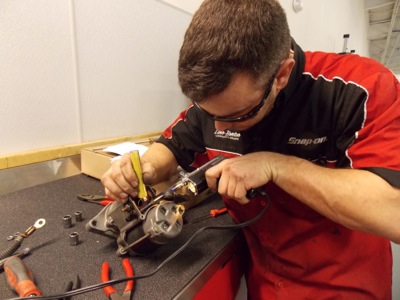
Snap-on’s Technical Education Program aims to partner with community colleges, technical schools and high schools to help train the next generation of technicians working in the automotive, aviation, manufacturing and energy industry sectors. Snap-on leveraged its strengths and knowledge by developing a certification program for specific disciplines that colleges and schools can teach to their students.
The goal of the certifications is to not teach how a vehicle operates or how an aircraft flies, rather its interest lies in teaching technicians the proper and best way to use tools and equipment to become more productive in their jobs. The certifications provide conformity and an across-the-board standard for the partnering colleges and schools to teach in-depth instruction on tool use, as well as theory and application. Upon completion of these courses, technicians become certified in the proper use of tools and equipment – making them more productive and well-rounded professionals. The certifications are not an add-on but rather, are integrated into the existing courses offered by partnering schools.
Certifications currently offered include:
- Automotive Scanner Diagnostics
- Mechanical and Electrical Torque
- Diesel Scanner Diagnostics
- Wheel Service
- Multimeter
- Asset Management (Foreign Object Damage and Tool Control)
- Horticulture
- Building Performance
To help facilitate these certifications, Snap-on has partnered with the National Coalition of Certification Centers (NC3), a network of education providers and corporations that support advances and validates new and emerging technology skills within several transportation and industrial markets.
Seeing the Program in Action
There can be a level of uncertainty when entering into a joint endeavor with an outside partner. Issues of cost, control, motives, past performance, validity of the partnership and return-on-investment are some of the concerns an institution may have to evaluate prior to jumping in.
“Sometimes you have to look a little bit past your fear factor,” Schiedler said. “For us, we have a successful program and people could say, ‘why take the risk and rock the boat?’ But when it came down to it, our evaluation is that you either move forward or you get pushed further behind. We want to make sure we’re keeping up with technology and giving our students the best opportunity to see where things are moving in the future – and Snap-on was clearly the company to align with.”
Seeing the program elsewhere in action and with results was an important factor in Linn-Benton’s decision to move forward with Snap-on. Gateway Technical College in Kenosha, WI, was one of the pilot schools to partner with Snap-on back in 2007 and offer its certifications to students.
Hamann led a team from Linn-Benton to Kenosha to meet with Snap-on representatives to see firsthand how the technical education program operates at Gateway and also glean ideas of how it could be implemented back in Oregon.
“We realized early on that this kind of transformative work, which isn’t just about expanding or upgrading the program, but really changing the relationship to the industries you serve, was going to require some pretty significant industry partners,” Hamann said. “It was pretty clear that once Snap-on had the interest to do that in the education areas and had done that successfully with Gateway, we really tried to figure out the extent of which our mission visions were compatible.
“After meeting with Snap-on and understanding their vision for the educational part of the equation, it didn’t take us long to realize we wanted to be partners with them.”
Challenging Linn-Benton
Having students earn certifications on the proper way to use tools and equipment is just one component of a Snap-on Technical Education Program partnership. Snap-on’s philosophy isn’t solely to provide curriculum, rather, they seek to work in conjunction with institutions to create a learning environment that best prepares students for life after graduation. Snap-on does this by relying on its knowledge of its customers and industry to understand the skill sets technicians need to enter the work force.
“Snap-on has added resources, perspective and experience in ways that really went beyond what we knew we were going to get into when we started this,” Hamann said. “One of the things that Snap-on has helped us to see differently is that we have always been a very community-based community college, and so in the past, we have really been focused on doing things that were interesting to students. But what Snap-on challenged us to do is to think more in terms of what is the sort of ideal industrial expectation and how do you prepare somebody for that world.
“I think in the past we would have thought, and to the disadvantage to our students, always do it as cheap as possible. So the issue of thinking more in terms of return on investment and less on just how cheap we can keep it has been a positive shift for us.”
Replicating the Real World
Trying to better replicate a real-world working environment meant it was time to look for a larger training facility. Since the early 1970s, Linn-Benton’s automotive shop mainly consisted of a few classrooms and an oversized garage located on the main campus. Its footprint was poorly laid out and inefficient; tools were located apart from the bays and space was a premium.
“I don’t think Linn-Benton had the materials or resources to let it grow,” said Jeff Pendleton, a second-year automotive student enrolled at Linn-Benton. “It’s like having a gold fish in a bowl. The fish is going to get bigger, but if you don’t give it a larger bowl, it’s going to get tight. That’s seems to be how the program was here. As it gained in popularity, more students were coming in; the facility wasn’t changing.”
College leadership had long known that its facilities limited what it could do. So when the relationship with Snap-on started to take form in 2010, they worked together to identify a new location for the automotive program and how it could best be designed to meet instructor and student needs moving forward.
John McArdle, director of development, Linn-Benton Community College, said one of the things he heard early and often in discussions with Snap-on regarding the automotive program and its facilities was, “What is it you’re trying to accomplish?”
“What they did was help ask the key questions early on: What do you want to do? What do you want to accomplish? Because they don’t tell you what you should do, they pose the questions to you,” McArdle said. “What Snap-on did that was most important was asking the right questions and challenge us, because we were making the decisions.”
For the program to grow, it needed a new facility. Turns out the answer was located about five miles from the main campus. The facility was an old trailer manufacturer that, with some renovation, would be the perfect home for Linn-Benton’s new Advanced Transportation Technology Center.
Snap-on lent technical assistance to Linn-Benton to help design the facility and the automotive bays to maximize space and efficiencies.
“They helped us understand what the highest and greatest use of that facility was going to be in that space,” McArdle said. “They helped us understand what the technical specifications that we wanted to aspire to if we were going to be a 2014 shop, not a 1970s shop.”
The Advanced Transportation Technology Center opened in 2013 with several new classrooms; a 27-bay garage, each set up identical, with its own complete set of Snap-on tools; 10 vehicle lifts; trainers; and all the latest diagnostic equipment.
Another change in the program that was minor in comparison to the Advanced Transportation Technology Center, but still made a big impact, was uniforms for students. Both students and instructors wear black and red uniforms embossed with the Linn-Benton and Snap-on logos.
“It was a day-and-night difference when we started wearing the uniforms,” said RJ Ehlers, an automotive instructor at Linn-Benton. “We were looked at as the grease monkeys on campus. But wearing the uniforms gives the students a higher level of professionalism, and I can see how the rest of the college looks at us differently now.”
And speaking of night and day difference, the new facility itself is a major upgrade to the automotive program.
“This center is beautiful,” said Roe Miller, a second-year automotive student enrolled at Linn-Benton. “It’s much nicer to work in, it’s brighter and warmer. We have the tool boxes right here at the bays. Before we’d have to go and hunt for tools, and that took a lot of time.”
Certifications in Action
Most of Linn-Benton’s automotive courses are two years; classes are geared toward prepping students to pass the ASE certification test.
The curricula for Snap-on’s tooling and equipment certifications are integrated into Linn-Benton’s automotive courses of study. As specific Snap-on disciplines are taught throughout a student’s two-year career at the college, they are tested on the material. Students who pass receive certification on that discipline.
The benefit of accumulating Snap-on certifications is that when they graduate and begin applying for jobs, they’ll have a leg up on the competition by being fully trained in specific tools and equipment.
“From the students’ perspective, they can put these certifications in their portfolio and take out to the industry and show prospective employers they’re certified in these areas,” Ehlers said. “The more certifications means the more sellable they are as employees.”
“Snap-on certifications will make me much more employable,” Pendleton adds. “Instead of having my employer waste time training me on this equipment, we can go in there and say we’re ready to go because we have the training and hands-on experience already. That’s saving my employer time and money.”
Prior to instituting the certifications at the college, Linn-Benton instructors attended Snap-on’s Train the Trainer Program. This week-long course gives instructors hands-on experience and awareness to the curriculum, so they in turn can go back to their students and properly provide the training.
An added benefit to eligible students is that they receive an exact set of Snap-on tools that they’ve been using in the lab upon graduating from Linn-Benton. The tools, which they receive at a discounted price, are essential when they begin their automotive careers. To cover their share of the investment, the cost is added to their tuition.
“Students like this benefit because they know they’re getting this set of tools that they’ve been working with right here; they know these tools inside out,” Ehlers said. “It’s crucial for students to have these professional tools because it shows an employer they’re serious and ready to work.”
Lasting Affects
The partnership with Snap-on has helped put Linn-Benton’s automotive program “on the map” and is attracting interest from other parties in the alternative fuels industry. The results have also led to a shift in thinking about how the college views its role in serving the community.
“The Snap-on partnership forced us to be more externally focused in terms of our purpose, and I think the future belongs to educational entities that are intentionally connected to the communities in terms of business and the industries they serve,” McArdle said. “That’s a huge shift in thinking and one that Snap-on has encouraged and helped us do.”
The success in automotive is also leading college leadership to look at opportunities in other departments as well.
“Automotive has become the lynchpin for a broader effort here at the institution,” Hamann said. “Some of our other disciplines are seeing the achievements we’ve made in automotive and are thinking about how to move their areas forward.
“Suffice to say it’s been a beneficial partnership for Linn-Benton, and the discussions with Snap-on started by asking us where we want to take the program. We wanted to take the program to the next level, but we just needed help in doing that. Snap-on has been the good partner to help us make that happen.”
For more information on Snap-on’s technical education program, visit https://www1.snapon.com/Education, or contact Frederick Brookhouse at [email protected], John Gamble at [email protected] or Earl Bailey at [email protected].

